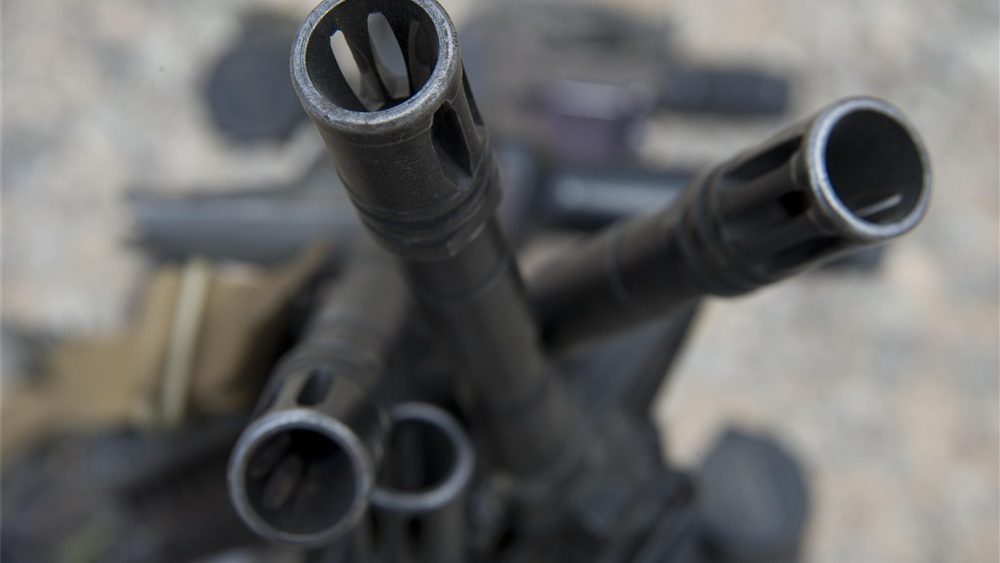European countries must stop selling weapons to states prone to violate the laws of war and human rights. Over the last years, EU States have increased their exports of conventional weapons to countries where genocide, crimes against humanity, war crimes and serious human rights violations are committed. European countries must put an end to exporting violence abroad and abstain from hiding themselves behind the counter-terrorism and national security narratives.
In fact, such legitimate concerns cannot provide a curtain to justify the arms trade, where there are strong suspicions that human rights are in jeopardy and serious concerns of International Humanitarian Law (IHL) breaches. Exports of conventional weapons to countries like Turkmenistan and Saudi Arabia showed how economic interests can overshadow commitments to prevent human suffering.
Between 2008 and 2017, the UK government approved arms exports to 29 of the 30 countries listed by the Foreign and Commonwealth Office (FCO) as “countries of concern”. Similarly, between 2007 and 2017 Italy stood out as the EU major supplier of weapons to Turkmenistan (for a total value of almost 340 million euros in weapons that ended up in Turkmenistan, 257 million euros -76%- came from Italy). French manufactured weapons have been found in Yemen, countering French claims that its sales to Saudi Arabia did not affect the Yemeni crisis, and Dutch weapons continued to be exported to human rights violators in 2017 making the Netherlands the world’s seventh largest arms exporter.
These sales took place despite the evidences and testimonies coming from the Arabian Peninsula or Central Asia. In Yemen, the Saudi-led coalition has been bombing unlawful targets, claiming the lives of thousands of men, women and children and destroying civilian infrastructure. In Turkmenistan human rights are continuously violated, the country was ranked amongst the 20 most corrupt ones in 2018 and labelled as an extremely repressive regime by Human Rights Watch and Amnesty International.
One question, then, arises: can states bear responsibility of how their exported manufactured weapons are used? Certainly, they can and they must.
The EU Common position says that states should assess “exports license applications on a case by case basis” against eight key criteria such as whether international obligations and human rights in the country of final destination as well international humanitarian law and “preservation of regional peace, security and stability” are respected. In the same vein, the Arms Trade Treaty, which entered into force in 2014 and regulates the international trade of conventional arms, has at its heart (Articles 6 and 7) an obligation for countries to assess an overriding risk that a proposed arms export will be used for or contribute to serious human rights abuses. If so, those arms must not be sent.
The EU Common position and Arms Trade Treaty (ATT) have thus introduced a notion of responsibility into the global arms trade that was absent before. However, while the ATT is a legally binding instrument, the EU Common Position is not legally enforceable. European institutions must claim a more significant role in controlling arms exports. First of all, they should improve coordination and harmonisation between countries, fight the fragmentation of different arms export control regimes and better control the maze of co-existing pieces of legislation at both the national and the European level.
Second, the EU Parliament should become a forum for transparency and public scrutiny of the defense sector and member states should abide by good reporting practices on arms trade. Last but not least, EU delegations could contribute by providing intelligence and support in conducting risk assessments before and after arms export to a third country, particularly when EU states lack diplomatic resources to do so. These are only a few examples of how a revivified, democratised Europe could play a significant role in monitoring arms-trade and prevent exporting violence to conflict contexts and authoritarian countries.
With this aim, we ask the EU to actively and concretely promote peace, define a clear mandate and adopt effective tools to enact a joint external policy in the arms trade domain. We call on European states to stop sales and exports of weapons to countries that could perpetrate genocide, crimes against humanity and war crimes, may be violating international humanitarian law or international human rights law, commit an act constituting an offence under international conventions on arms control and disarmament. Lastly, we demand a strengthened role of the EU Parliament in order to guarantee democratic oversight of the defense sector exports.
Camilla Roberti
Member of Thematic DSC Military and Foreign Policy
Do you want to be informed of DiEM25's actions? Sign up here




